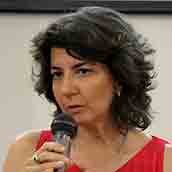ALMED, the Graduate School of Media, Communications and Performing Arts at Università Cattolica del Sacro Cuore, has just published, as part of the project "Il Libro Bianco delle Professioni della Comunicazione" (The White Paper on Communication Professions), a survey aimed at reconstructing the perceptions and thinking styles of young people who are entering the world of work in the various sectors of communication.
Young people constitute a significant target to be investigated for two reasons.First, they will constitute more than 75% of the global workforce in 2025. Secondly, they are almost unconscious bearers of a particular approach to work, which makes them decidedly different from the generations that preceded them, from several points of view: professional ambitions, areas of interest with respect to communication professions, the soft/hard skills required, expectations with respect to the "ideal boss", attention to work-life balance and CSR. The information and influencing processes through which young people reconstruct models and imaginaries linked to the experience of professions and companies are also diverse.
In this study, particular consideration was given to the experience of the under-25s, including, therefore, the more adult members of Generation Z (those born at the turn of the new millennium) and the "younger" members of Generation Y (those born between 1980 and 1995). There are many traits in common between the two generations, particularly with respect to their experience of the digital and communicative context: they move with ease between multiple platforms and multiple media content, managing the offline and online dimensions simultaneously, becoming to all intents and purposes citizens of what Luciano Floridi calls the onlife.
On the other hand, their attitude towards the future is different, especially in relation to socio-economic aspects.
Millennials have grown up in a world characterized by increasing globalization and digitalization, in a society that is increasingly multicultural and attentive to the issue of responsible consumption. However, they have had to come to terms with a profound phase of transformation in the world of work, following the economic crisis of 2008-2009, which has created contextual conditions that are not very favourable to the realization of their life goals. For this reason, we speak of a "generation left on the sidelines", if not actually "lost".
The Zetas, on the other hand, more than the previous generation, seem to be better able to manage instability and uncertainty, appearing disillusioned, but also optimistic about the possibility of building their own future autonomously.
In order to better interpret the new scenario of the world of work as seen through the eyes of young people, the study carried out by ALMED explored two macro-themes, using ad hoc surveys that started from points emerging from the reference literature.
The impact of different "generational traits" on the perception of the world of work
After a careful analysis of the sector bibliography linked to the Employer Branding theme, an ad hoc survey was conducted in two distinct phases. In particular, two questionnaires (one pre-Covid and one post-Covid19) were administered to a representative sample of the Italian population between the ages of 16 and 25, large and statistically significant (800 cases in the first phase and 500 cases in the second one).
The data and indications collected were also reinterpreted in the light of the various changes and accelerations introduced by Covid19 especially on the digital front. One thinks, for example, of the growth of smart working and the consequent exponential use of platforms such as Teams, Google Meet, Webex or Zoom.
At the level of expectations regarding the world of work, these main trends emerged from the research:
84% of the sample feels they have acquired or are acquiring technical and professional skills through their studies, feeling responsible for the training path they have taken.
Among the soft skills, honesty, curiosity and determination are the ones they think they possess and are the most important to make available to a future company, along with the willingness to work in a team and the problem-solving ability.
The perception of the labour market is overall positive, but with pockets of negativity related to the difficulty of figuring out exactly what to do, especially in the present context burdened by Covid-19.
Opinion leaders and influencing models of Generation Z
In order to draw the identikit and the cognitive background of the next class of professionals, the information and influencing processes through which the models and imagery linked to the experience of professions and companies are spread were also investigated. The reinterpretation of different theoretical paradigms has made it possible to trace a common idea on the characteristics of the opinion leader: he or she is the one who guides the decision-making processes within a community; he or she is a junction, a transmission joint between knowledge and subjects, a facilitator of choices and a generator of trust.
We must also remember that Gen Z has grown in a model of democratization of information: the network is a horizontal medium, there is no intermediation in information and everyone is placed on the same level. In this context, variables such as age, experience and gender do not necessarily influence the relationship of trust; even a peer, if considered "reliable" and "competent" can be recognized as an opinion leader.
Starting from these theoretical premises, the opinion leaders and influencing models of Generation Z have been investigated through a qualitative and quantitative research project (230 total subjects) entitled "I trust you", born from a collaboration between ALMED and Tips Research Institute.
From the data, five macro-skills emerged that young people require of new leaders both in the field of information and work: competence, communication, respect, responsibility and contribution. A leader, therefore, who is not only capable of transmitting knowledge, but also responsible and able to contribute to the well-being and creation of his/her reference network.
All the data collected and their analysis are the result of a virtuous alliance for knowledge that has seen 2BResearch, ALMED, Brandforum, Tips Research, Credem with the OpinionLeader4Future project and Universitybox working in synergy.




